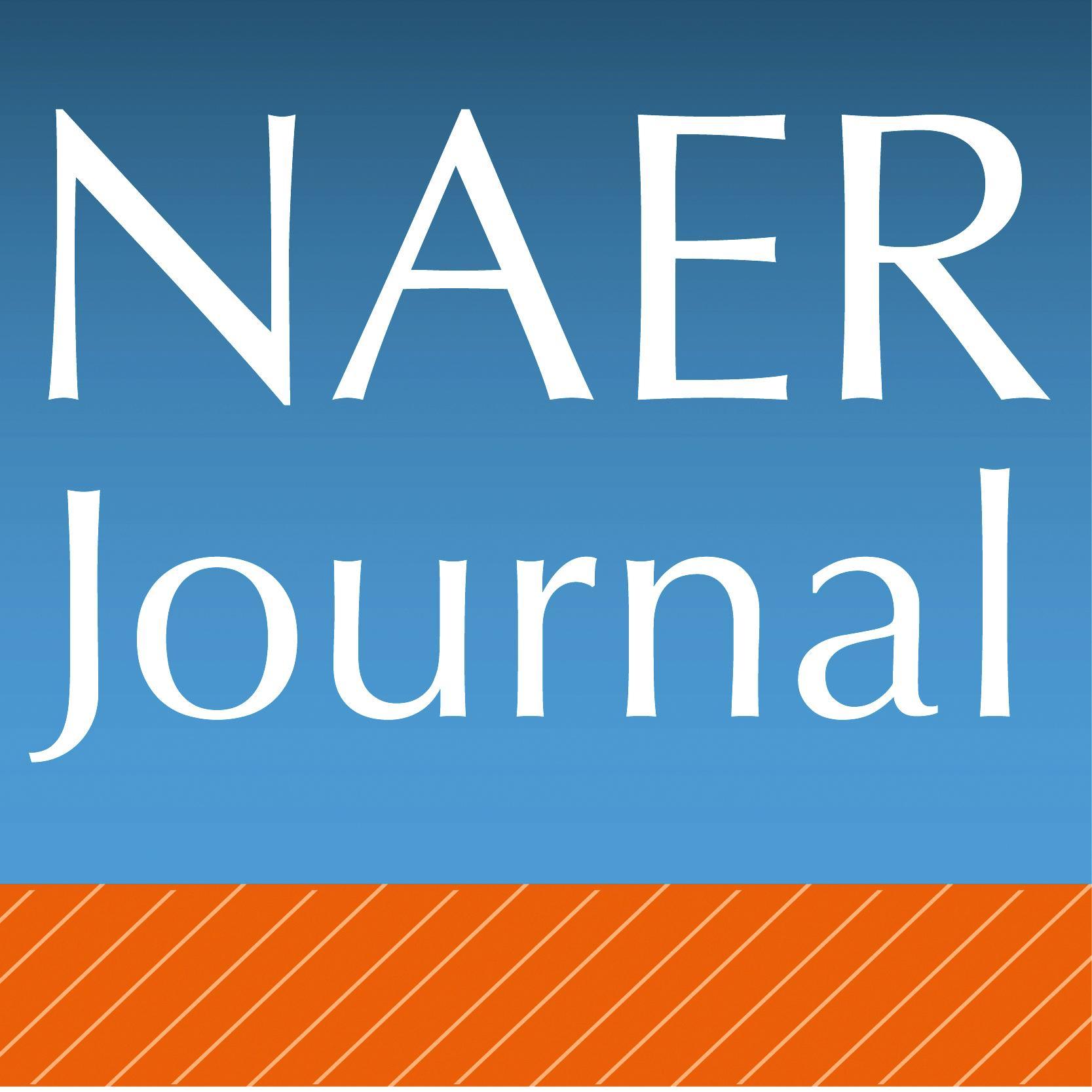El método fenomenográfico en la investigación educativa
Resumen
La fenomenografía es un enfoque metodológico nacido hace pocas décadas de la investigación educativa que ha sido poco utilizado en la investigación sobre tecnología educativa. La fenomenografía, en esencia, analiza las variaciones en las concepciones que tienen las personas relativas a un fenómeno del mundo que les rodea, su foco no está en comprender las diferentes concepciones que tienen los distintos individuos y que ayuden a entender las distintas formas de concebir un determinado fenómeno. En este artículo pretendemos hacer una descripción de qué es y cómo se usa la fenomenografía en la investigación educativa con la finalidad última de fomentar el desarrollo de una mayor y mejor investigación educativa. Así, tras hacer una revisión sobre el concepto de fenomenografía y de las concepciones como principal objeto de estudio en este método, se analiza uno de los aspectos más relevantes del enfoque fenomenográfico que es la selección de los participantes y sus diferencias con respecto a otras investigaciones cualitativas, las características definitorias de la entrevista fenomenográfica que la su principal técnica de recogida de información de las investigaciones fenomenográficas y las particularidades del proceso de análisis de los datos. Además, se analizan algunos ejemplos del uso de la fenomenografía en la investigación sobre tecnología educativa identificando las principales características que comparten y se concluye presentando los principales aportes del método y ventajas de su utilización.
Descargas
-
Resumen6895
-
PDF2850
-
PDF Kindle2850
-
Infografía89
Citas
Åkerlind, G. S. (2005). Phenomenographic methods: A case illustration. En J. A. Bowden y P. Green (Eds.), Doing developmental phenomenography (pp. 103-127). RMIT University Press.
Åkerlind, G. S. (2008). A phenomenographic approach to developing academics’ understanding of the nature of teaching and learning. Teaching in Higher Education, 13(6), 633-644. https://doi.org/10.1080/13562510802452350
Åkerlind, G. S. (2012). Variation and commonality in phenomenographic research methods. Higher Education Research & Development, 31(1), 115-127. https://doi.org/10.1080/07294360.2011.642845
Åkerlind, G. S. (2017). What future for phenomenographic research? On continuity and development in the phenomenography and variation theory research tradition. Scandinavian Journal of Educational Research, 60(3), 1-10. https://doi.org/10.1080/00313831.2017.1324899
Ashworth, P. y Lucas, U. (2000). Achieving empathy and engagement: A practical approach to the design, conduct and reporting of phenomenographic research. Studies in Higher Education, 25(3), 295-308. https://doi.org/10.1080/713696153
Booth, S. (2001). Learning computer science and engineering in context. Computer Science Education, 11(3), 169-188. https://doi.org/10.1076/csed.11.3.169.3832
Bowden, J. (1996). Phenomenographic research - Some methodological issues. En G. Dall'Alba y B. Hasselgren (Eds.), Reflections on phenomenography: Towards a methodology (pp. 49-66). Universitatis Gothoburgensis.
Bowden, J., D’All’Alba, G. y Martin, E. (1992). Displacement, velocity and frames of reference: Phenomenographic studies of students’ understanding and some implications for teaching and assessment. American Journal of Physics, 60, 262-268. https://doi.org/10.1119/1.16907
Bowden, J. A. y Walsh, E. (2000). Phenomenography. Phenomenography, 1, 154-169.
Carbone, A., Mannila, L. y Fitzgerald, S. (2007). Computer science and IT teachers' conceptions of successful and unsuccessful teaching: A phenomenographic study. Computer Science Education, 17(4), 275-299. https://doi.org/10.1080/08993400701706586
Cibangu, S. K. y Hepworth, M. (2016). The uses of phenomenology and phenomenography: A critical review. Library & Information Science Research, 38(2), 148-160. https://doi.org/10.1016/j.lisr.2016.05.001
Cope, C. y Ward, P. (2002). Integrating learning technology into classrooms: The importance of teachers' perceptions. Journal of Educational Technology & Society, 5(1), 67-74.
Cossham, A. F. (2018). An evaluation of phenomenography. Library and Information Research, 41(125), 17-31. https://doi.org/10.29173/lirg755
Dortins, E. (2002). Reflections on phenomenographic process: Interview, transcription, and analysis. Quality Conversations: Research and Development in Higher Education, 25, 207-213.
Falcomer, M. T. (1903). Phénoménographie: Ou recherches originales sur les facultés peu connues de l'homme. Librairie des Sciences Psychiques.
Forster, M. (2016). Phenomenography: a methodology for information literacy research. Journal of Librarianship and Information Science, 48(4), 353-362. https://doi.org/10.1177/0961000614566481
Guo, J. P., Yang, L. y Shi, Q. (2017). Effects of perceptions of the learning environment and approaches to learning on Chinese undergraduates’ learning. Studies in Educational Evaluation, 55, 125-134. https://doi.org/10.1016/j.stueduc.2017.09.002
Guba, E. G. (1981). Criteria for assessing the trustworthiness of naturalistic inquiries. Educational Technology Research and Development, 29(2), 75-91. https://doi.org/10.1007/BF02766777
Hajar, A. (2021). Theoretical foundations of phenomenography: a critical review. Higher Education Research & Development, 40(7), 1421-1436. https://doi.org/10.1080/00131857.2020.1724088
Hammond, M., Howarth, J. y Keat, R. (1991). Understanding phenomenology. Oxford press.
Han, F. y Ellis, R. A. (2019). Using phenomenography to tackle key challenges in science education. Frontiers in Psychology, 10, art. 1414. https://doi.org/10.3389/fpsyg.2019.01414
Harris, L. R. (2008). A phenomenographic investigation of teacher conceptions of student engagement in learning. The Australian Educational Researcher, 35, 57-79. https://doi.org/10.1007/BF03216875
Hidalgo, N. y Murillo, F. J. (2017). Las concepciones sobre el proceso de evaluación del aprendizaje de los estudiantes. REICE. Revista Iberoamericana sobre Calidad, Eficacia y Cambio en Educación, 15(1), 107-128. https://doi.org/10.15366/reice2017.15.1.007
Johnston, N. y Salaz, A. M. (2017). Using phenomenography to bridge the gap between research and practice: A meta-analysis of three phenomenographic studies. Information Research, 22(4), 1-10.
Kettunen, J. y Tynjälä, P. (2018). Applying phenomenography in guidance and counselling research. British Journal of Guidance & Counselling, 46(1), 1-11. https://doi.org/10.1080/03069885.2017.1285006
Khan, M. S. H. (2014). Phenomenography: A qualitative research methodology in Bangladesh. International Journal on New Trends in Education and Their Implications, 5(2), 34-43.
Khan, M. S. H., Abdou, B. O., Kettunen, J. y Gregory, S. (2019). A phenomenographic research study of students’ conceptions of mobile learning: An example from higher education. Sage Open, 9(3), 57-71. https://doi.org/10.1177/2158244019861457
Khan, M. S. H., Bibi, S. y Hasan, M. (2016). Australian technical teachers’ experience of technology integration in teaching. Sage Open, 6(3), 36-54. https://doi.org/10.1177/2158244016663609
Lam, H. C. (2019). The phenomenography tradition in the study of classroom teaching, International Journal of Research & Method in Education, 42(5), 513-524. https://doi.org/10.1080/1743727X.2018.1518417
Martínez-Garrido, C., Hidalgo, N., Márquez, C. y Graña, R. (2022). Las concepciones docentes sobre democracia en educación en España. Un estudio fenomenográfico. Aula Abierta, 51(3), 293–302. https://doi.org/10.17811/rifie.51.3.2022.293-302
Marton, F. (1993). Phenomenography. En T. Husen y T. N. Postlethwaite (Eds.), The international encyclopedia of education (pp. 4424-4429). Pergamon Press.
Marton, F. (1981). Phenomenography: Describing conceptions of the world around us. Instructional Science, 10, 177-200. https://doi.org/10.1007/BF00132516
Marton, F. (1986). Phenomenography: A research approach to investigating different understandings of reality. Journal of Thought, 21(3), 28-49.
Marton, F. (1992). Phenomenography and "the art of teaching all things to all men". International Journal of Qualitative Studies in Education, 5, 253-267. https://doi.org/10.1080/0951839920050305
Marton, F. (1996). Cognosco ergo sum Reflections on reflections. En G. Dall'Alba y B. Hasselgren (eds.), Reflections on phenomenography: Toward a Methodology (pp. 163-189). Acta Universitatis Gothoburgensis.
Marton, F. y Booth, S. (1997). Learning and awareness. Lawrence Erlbaum
Marton, F., Dahlgren, L. O., Svensson, L. y Säljö, R. (1977). Learning and conception of the world around us. Almquist and Wiksell.
Moyano-Díaz, E. (2016). Construyendo el concepto de felicidad para adultos desde la fenomenografía. Universum, 31(2), 141-156. https://doi.org/10.4067/S0718-23762016000200009
Murillo, F. J. e Hidalgo, N. (2017). Students conceptions about a fair assessment of their learning. Studies in Educational Evaluation, 53, 10-16. https://doi.org/10.1016/j.stueduc.2017.01.001
Murillo, F. J. e Hidalgo, N. (2020). Fair student assessment: A phenomenographic study on teachers’ conceptions. Studies in Educational Evaluation, 65, 1-10. https://doi.org/10.1016/j.stueduc.2020.100860
Perry, W. (1979). Forms of ethical and intellectual development in the college years. A scheme. Jossey-Bass.
Pozo, J., Mateos, M. y Pérez Echeverría, M. P. (2006). Las teorías implícitas sobre la enseñanza el aprendizaje. En J. Pozo, N. Scheuer, M. P. Pérez Echevarría, M. Mateos, E. Martín y M. de la Cruz (Eds.), Nuevas formas de pensar la enseñanza y el aprendizaje. Las concepciones de profesores y alumnos (pp. 95-134). Graó.
Pramling S. I. y Pramling, N. (2016). Variation theory of learning and developmental pedagogy: Two context-related models of learning grounded in phenomenography. Scandinavian Journal of Educational Research, 60(3), 286-295. https://doi.org/10.1080/00313831.2015.1120232
Prinsloo, P., Slade, S. y Galpin, F. (2011). A phenomenographic analysis of student reflections in online learning diaries. Open Learning: The Journal of Open, Distance and e-Learning, 26(1), 27-38. https://doi.org/10.1080/02680513.2011.538562
Richardson, J. T. (1999). The concepts and methods of phenomenographic research. Review of Educational Research, 69(1), 53-82. https://doi.org/10.3102/00346543069001053
Rovio-Johansson, A. y Ingerman, Å. (2016). Continuity and development in the phenomenography and variation theory tradition. Scandinavian Journal of Educational Research, 60(3), 257-271. https://doi.org/10.1080/00313831.2016.1148074
Sandbergh, J. (1997). Are phenomenographic results reliable? Higher Education Research & Development, 16(2), 203-212. https://doi.org/10.1080/0729436970160207
Solomonidou, C. y Tassios, A. (2007). A phenomenographic study of Greek primary school students’ representations concerning technology in daily life. International Journal of Technology and Design Education, 17(2), 113-133. https://doi.org/10.1007/s10798-006-0007-9
Souleles, N., Savva, S., Watters, H., Annesley, A. y Bull, B. (2015). A phenomenographic investigation on the use of iPad s among undergraduate art and design students. British Journal of Educational Technology, 46(1), 131-141. https://doi.org/10.1111/bjet.12132
Stamouli, I. y Huggard, M. (2007). Phenomenography as a tool for understanding our students. En D. Brabazon y A. Ghani Olabi (Eds.), international symposium for engineering education (pp. 181-186). Dublin City University.
Su, X. y Ding, B. (2022). A phenomenographic study of Chinese primary school students’ conceptions about technology. International Journal of Technology and Design Education, 4, 1-39. https://doi.org/10.1007/s10798-022-09742-5
Svensson, L. (1997). Theoretical foundations of phenomenography. Higher Education Research & Development, 16(2), 159-171. https://doi.org/10.1080/0729436970160204
Thompson, E. y Kinshuk. (2011). The nature of an object-oriented program: How do practitioners understand the nature of what they are creating? Computer Science Education, 21(3), 269-287. https://doi.org/10.1080/08993408.2011.607010
Trigwell, K. (1997). Phenomenography: An approach to research. En J. Higgs (Ed.), Qualitative research: Discourse on methodologies (pp. 39-47). Hampton Press.
Trigwell, K. (2000). A phenomenographic interview on phenomenography. Phenomenography, 1, 62-82.
Van den Berg, B. (2002). Teachers' meanings regarding educational practice. Review of Educational Research, 72, 577-625. https://doi.org/10.3102/00346543072004577
Willis, A. S. (2017). The efficacy of phenomenography as a cross-cultural methodology for educational research. International Journal of Research & Method in Education, 40, 1-17. https://doi.org/10.1080/1743727X.2017.1283398
Wu, X. y Ding, B. (2020). Technology teachers’ conceptions of technology teaching in secondary schools in Beijing: a phenomenographic analysis. International Journal of Technology and Design Education, 32, 1037-1061. https://doi.org/10.1007/s10798-020-09629-3
Yau, K. W., Chai, C. S., Chiu, T. K., Meng, H., King, I. y Yam, Y. (2022). A phenomenographic approach on teacher conceptions of teaching artificial intelligence (AI) in K-12 schools. Education and Information Technologies, 3, 1-24. https://doi.org/10.1007/s10639-022-11161-x
Derechos de autor 2022 F. Javier Murillo, Nina Hidalgo, Cynthia Martínez-Garrido

Esta obra está bajo una licencia internacional Creative Commons Atribución-NoComercial-CompartirIgual 4.0.
Aquellos autores que tengan publicaciones con esta revista aceptan los términos siguientes :
-
Los autores conservarán sus derechos de autor y garantizarán a la revista el derecho de primera publicación de su obra, el cuál estará simultáneamente sujeto a la Licencia Creative Commons Atribución no comercial compartir por igual 4.0 Internacional que permite compartir, copiar y redistribuir el material en cualquier medio o formato y adaptar, remezclar, transformar y construir sobre el material en los siguientes términos:
Reconocimiento - Debe dar el crédito apropiado, proporcionar un enlace a la licencia, e indicar si se han realizado cambios. Puede hacerlo de cualquier manera razonable, pero no de una manera que sugiere que el licenciante o su uso hace suya. No comercial - No puede utilizar el material con fines comerciales. Compartir bajo la misma - Si remezcla, transformar o crear sobre el material, se debe distribuir sus contribuciones bajo la misma licencia que el original. -
Los autores podrán adoptar otros acuerdos de licencia no exclusiva de distribución de la versión de la obra publicada (p. ej.: depositarla en un archivo telemático institucional o publicarla en un volumen monográfico) siempre que se indique la publicación inicial en esta revista.
-
Se permite y recomienda a los autores difundir su obra a través de Internet (p. ej.: en archivos telemáticos institucionales o en su página web) antes y durante el proceso de envío, lo cual puede producir intercambios interesantes y aumentar las citas de la obra publicada. (Véase El efecto del acceso abierto).
-
En cualquier caso, el Equipo Editorial entiende que las opiniones vertidas por los autores son de su exclusiva responsabilidad.
















